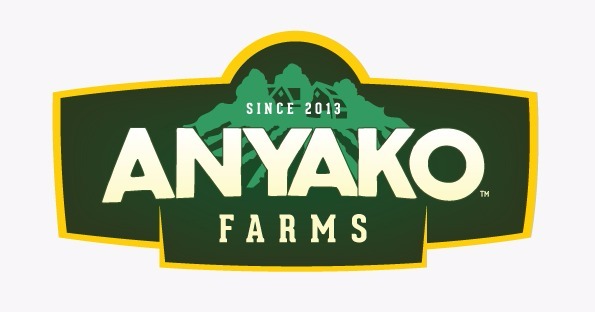His Excellency,
The President of the Republic of Ghana,
Jubilee House,
Kanda.
His Excellency,
HOW TO DOUBLE CURRENT NATIONAL YIELDS IN 2 YEARS
Today marks exactly 2 years when Ghanaians went to the polls to elect you in a historic election with a 4 year mandate.
Today is significant for me for 2 reasons;
- It marks your 2nd National Farmers’ Day Celebration in office.
- It exactly 2 years to the next general elections in 2020.
In the last two years, your administration have taken some bold steps towards positioning agriculture as the engine of growth for the Ghanaian economy. I did acknowledged during the recent Joy FM Assessment of your administration – The Scorecard, that the ‘Planting for Food and Jobs’ (Now to be rolled out ‘Rearing for Food and Jobs’) are policy initiatives in the right direction to support make available at affordable prices to farmers certified seeds, fertilizers and extension services. As a young farmer, access to these services at the district level is commendable although there is the need to review the scheme to address consistent supply arrangements all year round especially for farmers with investment into irrigation, address supply challenges during major seasons, ensure right quality of seeds and fertilizers among others.
Mr. President, I do not expect government in perpetuity to continue this policy initiative. The financial commitments on this and other government interventions are huge and increasing. To this end, I expect your administration to begin thinking of the exit plan for PFJ. An advantage of using certified seeds, quality fertilizer and the right extension services is to increase crop yields and improve productivity per acre of land cultivated. But Mr. President critical in this mix is the role of extension officers. Agriculture is both a science and an art. Almost all farmers in Ghana know the art – clearing the land, planting, harvesting among others. What has been missing is the science to farming, Mr. President.
The influence of science in the value chain is enormous. It impacts soil analysis to determine the nutrient level of the soil, the soil type and the recommended crops for that type of soil. It shapes how lands are prepared for planting (What centimeters should the plough and harrow disc cut). It informs when to plant, how to plant, when to apply which type of fertilizers, how to control insects and pests, the general farm management including when to harvest and post-harvest management among others.
Mr. President, I am sorry to inform you that we farmers cannot access the services of this science locally from the extension services provided. We appreciate the challenges facing the extension services department of the Ministry of Food and Agriculture with respect to staff recruitment and training, logistics, retention etc. But largely, the quality is poor. Mr. President, I say so with shame because I have in my 5 years in farming experienced first-hand the impact of foreign expertise vis-à-vis local experts. I have come to only one conclusion – we do not have the skill to move our agriculture to the next productive level. I encourage you Mr. President to visit farms in Ghana being managed by foreigners and compare it to farms owned and managed by Ghanaians. You will bow your head in shame. The effectiveness and efficient utilization of resources is amazing at these foreign managed farms. Most of them produced under the same rain-fed like many farmers in Ghana but because of the influence of science and the practical understanding of farming, they are 5 times productive than the Ghanaian.
Mr. President, I am however hopeful we can achieve the same level of efficiency and productivity in this country. We can do so not by sending our people to foreign countries to go and learn the science and innovations and come help our farmers. Ghana must begin to collaborate with some of these foreign specialized nations like Netherlands, Israel, Brazil, South Africa etc. to bring in experts across the various crops to help work with local extension officers mapped out in various districts to help develop local content agronomy practices, support farmers with production planning and transfer knowledge over time to these farmers so they can begin to drive increase yields at sustainable levels.

I have come to love your commitment to decentralization as a way of national development. And I am appealing to your high office to show commitment to doing this by piloting over the next 2 years, the deployment of at least 10 foreign agriculture experts (number to be increased over time to achieve a ratio of 1 expert to 10 local extension officers) per production districts.
Mr. President, you can only imagine the gratitude of a farmer who will be able to increase his/her yield from an average of 1.8ton per hectare for maize to 5ton per hectare over a period due to the influence of science-based extension services. These farmers will become commercially viable and will be in a position to fund from their production activities the acquisition of certified seeds, fertilizers, other inputs and invest in extension services. At this stage, government may not have to subsidized certified seeds, fertilizers, provide free extension services among others.
Mr. President, the science is all there is to the farming today. It is expensive for farmers to procure the services of these qualified foreign experts on their own. You have demonstrated the greatest commitment to addressing the challenges of the sector and this is critically the hidden challenge most technocrats and policy makers would not bring to your attention. Farming like any business must build capacity first before capital. And we the farmers of Ghana are appealing to you to invest in building that capacity through bringing foreign experts to Ghana to come help us develop local content responses to our yield improvement challenges.
Mr. President, I know you have other good intents for the sector but it’s just 2 years to double the current production levels before you seek the next mandate and to achieve your ultimate aim of moving Ghana beyond aid.
–
By: Richard Nunekpeku (Chief Farmer – Anyako Farms Limited – Email – Nunekpeku.anyako@gmail.com)




















